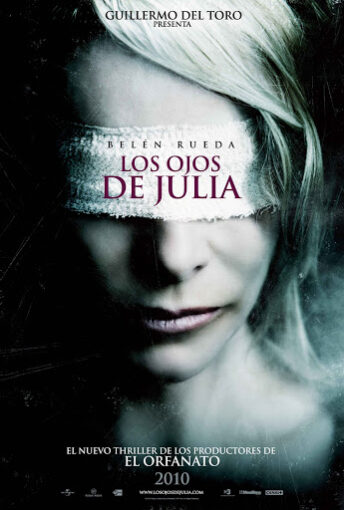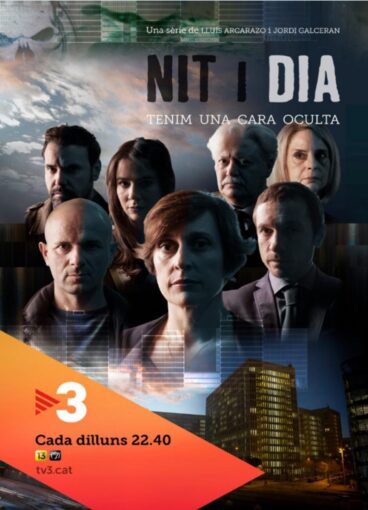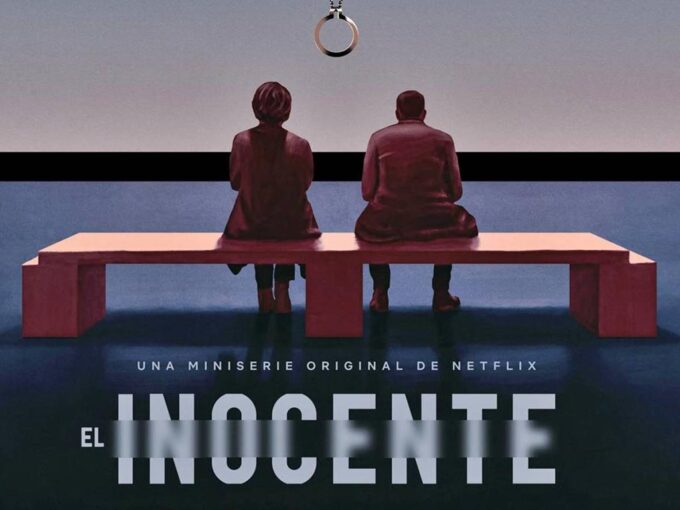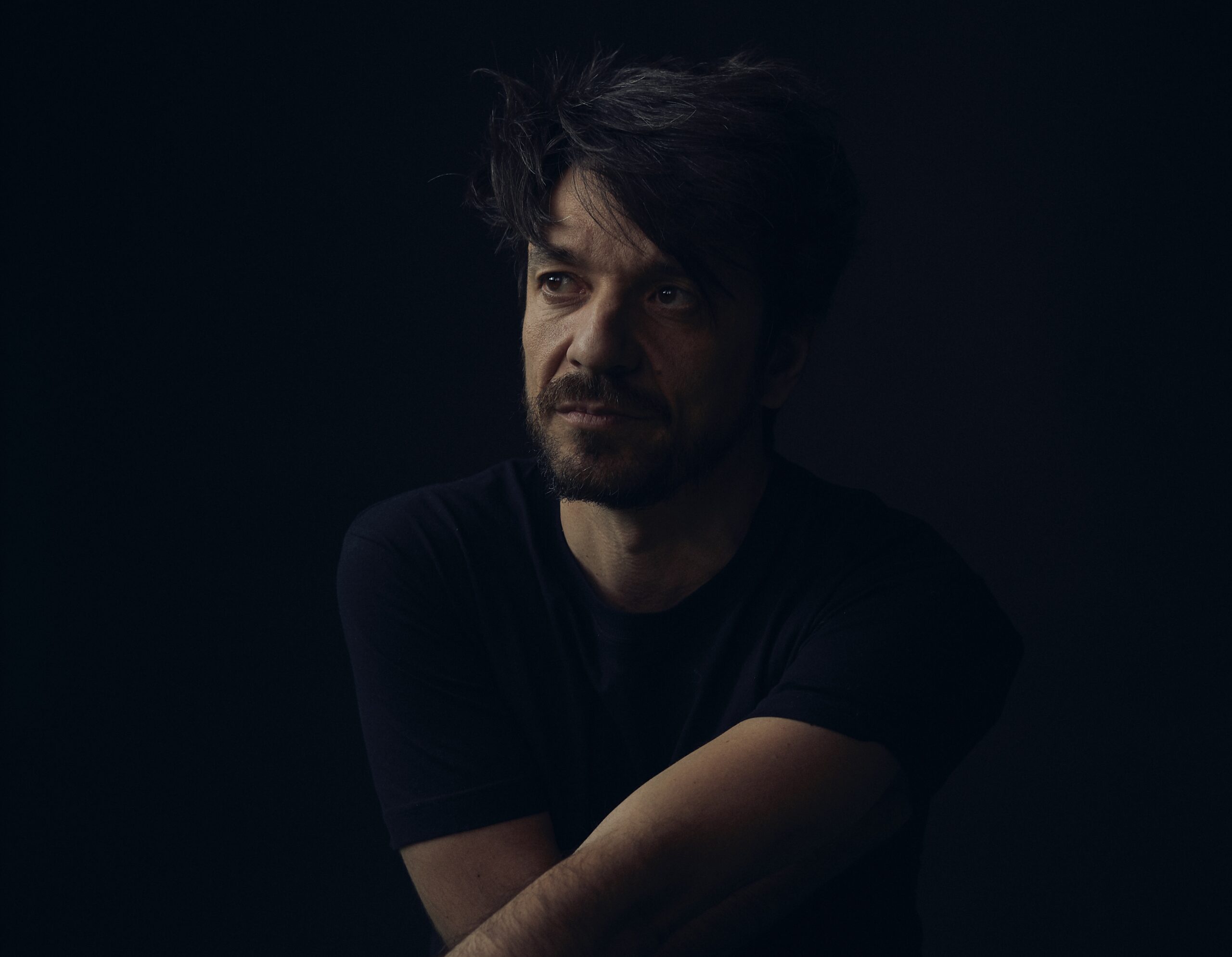Oriol Paulo… One of the brightest and most original screenwriters and directors of our days and many years to come. Oriol Paulo, born in Catalonia, a graduate of the Los Angeles Film School, has accomplished great things in his career, especially in the crime genre. He has created some of the most successful examples of the genre with his expertly tied knots, elegant solutions to these knots, twists and turns, rich dialogues, in-depth characters and a narrative style that involves the audience in the process. The Body (2012) and The Invisible Guest (2016) should be on your must-watch movies list. Julia’s Eyes (2010) and Mirage (2018), which he created by blending genres such as horror and science fiction with crime genre, are also proof of Paulo’s rich world.
In addition to film projects, Oriol Paulo has also signed successful TV series. Night and Day (2016 – 2017) is one of them. Another one is the eight-episode El Inocente series, which was recently released on Netflix. Oriol Paulo is the director and screenwriter of the series, which is based on Harlan Coben’s novel of the same name.
As part of the International Crime Festival held by 221B between 23 and 28 February 2021, we had a full interview with Oriol Paulo about his career, movies, and TV series. Here is a part of our interview with Oriol Paulo where we talked about the El Inocente, his upcoming movie Los renglones torcidos de Dios, which is also a novel adaptation, his plans for the coming years, his thoughts on the present and future of the TV series and film industry. Enjoy…
Oriol Paulo, you have a great career and at such a young age actually. Can you share with us how your journey started as a director and writer for movies and TV series?
Oriol Paulo: Well, in fact it started when I was very young. The thing is when I was a kid, I really loved movies and storytelling. My grandmother, she used to be a great reader of mystery novels. She loved Agata Christie, for instance. So, when I was 14, I had already read all the Agatha Christie stories.
And I was very into the genre. The thing is when I grew up a little bit and I had to go to university, I had the pressure of my family saying, you must look for a career that allows you to make a living. So, I started economics and I just stayed there for three months and then I quit. And then I went into film school. So, it started at that age when I decided that this was the dream I wanted to follow. And then of course, um, I started to work as a TV writer. I was doing a lot of soap operas and some TV shows until I met a director, Guillem Morales and we understood each other very well. And he proposed me to write Julia’s Eyes. The movie was produced by Guillermo Del Toro, which allowed me to put my name into the industry. And after the release of Julia’s Eyes, I already had the script for The Body ready. So, the producers came to me and said, do you have any other stories? And I said, yes, I have The Body. And they said, who do you think can direct The Body? And I said, me. So that was how I started.
Julia’s Eyes was a great movie. As you said, produced by the amazing Guillermo Del Toro. And then we have The Body. A detective searches for the body of a wom- an, which has gone missing from a morgue. And as you said, you both wrote and directed the movie. An amazing work of mystery and thriller and twists and turns. Can you talk a bit about The Body and the experience of directing something that you wrote?
Oriol Paulo: The thing is, when I wrote The Body, I knew I had to put like everything I had inside me in the movie. So, as every good mystery novel, I knew it had to start with a what if situation. In this case it is “what if a body goes missing from a morgue?” I knew, I wanted to make a movie that from the very beginning would put a question mark in the mind of the audience.
And I knew I wanted to drive the audience towards solving this puzzle. I wanted to have a shocking and surprising final answer, but as in the good mystery novels, I knew I had to put all the clues in front of the audience so they can just make sense of the puzzle. I don’t know. It was like, okay, this is me. This is what I want to do.

Mr. Paulo, you also write TV series. Night and Day (2016-2017) that follows the everyday life of a young forensic doctor Sara Grau is one of them. What was working on a TV Show like? Was it different from working on a movie?
Oriol Paulo: Yes. Night and Day was actually a small show that I was very interested in doing because it was a show that was shot in Catalan, my mother language. It was a show that was really brave in the way they let us approach certain situations. I was very attracted to telling something really strong. Imagine that you have to go to the morgue every day. And your life basically consists of dealing with dead people. I mean what you see in your everyday life is death. And the contrast with having a normal life, that was really interesting for me and for other writers too. For me it was kind of a break, something in small scale. I said okay, I need to do this. To do something with no pressure for the budgets, the box office or whatever. It was a TV show that was very small in the budget, but it was completely free in style.
So, it allowed me to experiment a lot and work with a lot of excellent actors. And we had to be sure about what we wanted, because the time we had for the shooting was really limited. And for me, it was a way to test myself. I said, okay, you have to do a 50-minute episode and you have this little time, and this is the material. It needs to be very strong, and you’ll have complete freedom to shoot it the way you want. And in this show, we did. Amazing, amazing scenes that are really, really hard to watch. And in terms of time, it’s like, maybe making four movies in the time that you’ll have for making one. It was a way to improve my skills, my way to approach certain things. I really was in love with the material, and I really was in love with the freedom we had to make the show.

Yes, and we are living in an age in which viewers can access a great number of movies and TV series through streaming platforms, instantly. Where do you see the feature of TV shows?
Oriol Paulo: Well, I don’t know. I’ve just I finished a TV show four days ago, a Netflix one. I don’t know how the future is going to be, but the pandemic has put us in a situation in which the platforms now have a huge power in distributing the films. I don’t know how it is in Türkiye, but in Spain, the movie industry is having a really bad time because the movie theaters are losing a lot of audience right now. I think, we will always want to watch good shows and good movies. I think the platforms like Netflix, HBO, Amazon and the like are giving a lot of opportunities to make a long movie.
When you make a movie, you’ll have two hours to explain everything and sometimes you’ll have to just go straight into the essential points. But when you are dealing with a show, you can just play a little bit with the characters and explore every character and the situation.
And I think it is a good thing for me to make long movies presented as TV shows or mini-series.
I hope that the future of movies will not be very much affected by the COVID-19. I hope when we go back to normal, movie theaters will be running again like they used to do. I’m going to start a new movie in one month and we are thinking about releasing the movie in big screen. I really think that the platforms are really good for this freedom to make any kind of content and you can have a lot of TV shows and people can just watch one episode after another and that’s, pretty cool. But I also think that movies are made to be watched on a big screen. And I will feel very sad if we lose this tradition.
Yes, exactly. And the same is applicable here in Türkiye too, regarding the movie theaters. You mentioned your TV series, which I want to talk about. El Innocente, The Innocent. It will be available on Netflix I presume. How did you decide on such a project?
Oriol Paulo: Yes, it was finished four days ago. We finished the final mixing. And in fact, after I finish this interview, I will go to a screening of the episodes. Tomorrow we have like the final delivery of the show. Why I decided to do the show… I will be very honest with you. When I finished Durante la tormenta (Mirage), I said, okay, I need a break. I need to stop for maybe three months. I am very tired. And I got a call from Netflix, and they said that they have this novel by Harlan Coben whom I already knew. And that they want me to adapt it. And I said, no, I’m very tired. And they said, okay, read the novel. I read the novel and I said okay, I am going to do it. I had read many novels of Harlan Coben but not The Innocent. When I talked to Netflix they said you have complete freedom. You can do whatever you want to do with the book as long as Harlan is okay with it. So, I made a proposal and went to New York to talk to Harlan. He was very cool with my proposal. When I finished Durante la tormenta, I started to write first the bible and then the eight episodes and then directed the whole movie. It’s been a two year process actually.

What do you expect from this series Mr. Paulo?
Oriol Paulo: The way I decided to make the show and what I proposed to Harlan was very much my style. I said to Harlan, listen, I love your material. I think it’s great. I just want to do it my way. I said, let me do my puzzles. And I am expecting people to watch the show and just again, feel a big question mark at the very beginning. And try to solve the puzzle situation. Just in this case, it’s an eight-hour show, the puzzle is really big and it has a lot of pieces, but it’s a show that has a lot to do with my first two films, The Body and The Invisible Guest. It’s really a mystery mystery mystery thriller show.
I want to talk a bit about your future projects. You are currently working on a movie. Los renglones torcidos de Dios. It is in pre-production.
Oriol Paulo: Yes, it’s in preproduction. In English it will be something like God’s Crooked Lines. This is another adaptation of a very famous Spanish book that I really adored when I was a kid. It’s a book that had big influence in my generation and the next ones. It is a mystery detective movie with a little bit more drama and it’s about a detective that goes into a psychiatry hospital to try to solve a murder. So that’s the premise of the movie. The only thing I can talk about the movie is that the main character will be played by Bárbara Lennie. She was in The Invisible Guest, she was Laura. She is a fantastic actress and I’m very excited to work with her again.
Yes, the movie is based on the novel of Torcuato Luca de Tena. He is an interesting writer and a Franco supporter actually. Why this book?
Oriol Paulo: This book has a main influence on my generation and the main character is really amazing. The book for me is like a base to work with. And I took the material, and I did my movie. So, it’s not a strict adaptation of the book. It’s my style. But you are mentioning something important. That book was published just in the transition of Spain. In the story we add some of these layers to explain how Spain was changing for good into a democracy in those days. And this is something that is not really there in the book. We just put it into the script to make clear what we are talking about. A period in which Spain was changing for good. And I think that at least the Spanish audience will recognize what our perspective of the situation is. We were really happy about this transition.
Well, now that we are talking about novel adaptations, I wonder how you feel about this. We have many adaptations, and we will have many adaptations. How should one approach a novel to adapt it? And will you be working on more adaptations?
Oriol Paulo: I don’t know, it was an accident, because I was not expecting the offer from Netflix. And in fact, for me, it was very appealing to have the Harlan Coben book and I was not expecting to get the rights for Los renglones torcidos de Dios. It was a book that was highly desired by many people who wanted to adapt it. So, I was not expecting to get the rights. It was kind of a coincidence that I had these two books to adapt. My feeling is, my next projects will not be book adaptations. In my case, I think, It’s okay for now. Also, be- cause I have my material that I really want to develop for the next projects.
But in the case of the novel adaptation, for me the important thing is what do you have that makes you want this book, what’s inside you that says, okay, I want to adapt this book. You have the point of view about the story you want to adapt. I can only talk by these two adaptations, but I think you need to know perfectly what part of the book you real- ly want to explore. Sometimes you just have to throw away other parts. I think Hitchcock did this perfectly. He was not writing but he had very good writers working for him. He was the master of adapting novels and he used to adapt not very “famous” novels or maybe “good” novels. But he knew that some part of that book was appealing to him for making a movie. I think that an adaptation of the book has sense when you can apply your point of view of a story and translate it into something which is based on that material, but it has all your world in it too. And to do that, you need to know what you want to tell and know the reasons for adapting that book. I mean, I can talk only about my ad- aptations but in the case of The Innocent, I was able to put a story together. And in the case of Los renglones torcidos de Dios, it’s based on the character. I mean, you’ll have to read the book to understand that, but the charac- ter is amazing. The character of Alice is really, really amazing.
Well, we are looking forward to it. So, I know that you love Hitchcock, but do you have any other favorite directors?
Oriol Paulo: Yes, of course, one of my favorite directors today would be David Fincher. Since I was seven, he had a huge influence on me, and I cannot wait to see everything he does. And the other one is, I’m not going to be very original but Christopher Nolan. I think Christopher Nolan is probably the best director of our times. I really love the way he plays with the structure and the form of things. And you can watch a movie and say, this is a Nolan movie, and this is what I like when I’m watching a film. I want to feel the personality of the person who is behind the camera. Same goes for Pedro Almodóvar who is our most famous director. You can watch his movies and say that this is an Almodóvar movie. I really like it when people put their signature in the story and put their view of life into the movie.
I have many, many directors that I really, I really like. I really love Martin Scorsese movies. I mean, the way he tells the stories and he can make a three-and-a-half-hour movie and it’s just like boom, and it is very short. I tend to be just saying names and names and names, but if I had to choose one, I would choose Christopher Nolan today.
How about TV series, especially crime genre? Do you have a favorite?
Oriol Paulo: Uh, let me see. Well, I thought Fargo was really fantastic. It’s a TV show that I really love because it’s so crazy and it’s so about the characters that I really love. And one of the recent ones is Euphoria. It’s not crime but it has some aspects of crime, but I felt it was completely amazing. And then Succession. For me, Succession has been the best TV show in the last years. And it has some noir elements, but it’s very much based on the characters. I try to consume a lot of TV of course. My favorite one is The Sopranos, which is a little bit old, but The Sopranos for me was like a school of learning. Also, The Wire. These are TV series that, you know, put the base to say, okay, this is a good TV show. I mean, we cannot go below these levels.
Mr. Paulo, your work received various remakes. The Body was remade in India. And in Korea, The Invisible Guests also received three remakes. Your work is loved, especially in Asia. How do you evaluate this when you compare the reception you received in Spain? I mean, what does this mean to you and what does your work mean to them?
Oriol Paulo: I don’t know about the Asia situation. I mean, there’s something and I don’t really know what it is that makes that my movies huge there. I have been in China two times to promote first The Invisible Guest and then Mirage. Both went into the top 10 in the box office in China. Maybe there is something cultural about it. In Korea people really like to go to movie theaters and experience the movie in a big screen. In Spain, unfortunately we are losing a little bit the habit of going to the movies and now with the COVID-19 of course, it’s even worse. But before the COVID-19, it was not doing that good. So, I think there’s something cultural about going to the movies and then maybe they really like mystery movies. I don’t know. I can tell you that for me, Korean movies are also probably the best foreign movies you can watch. When I watch a Korean movie, I can understand all the process of making this movie. I can really understand why this movie exists. Uh, maybe there is some codification in the way we tell the things that is close. It’s really nice to see that my movies are traveling so far from Spain.

Your work is also on Netflix. Many of your movies are there. How did this change your process of reception?
Oriol Paulo: Before Netflix or the other platforms, reaching to the overseas was very complex. For The Body, which was released in different foreign countries, in the United States, I think we had 20 movie theaters. I mean, it was really, really low for a foreign movie. It’s really hard. They don’t really like to read the subtitles and it was complicated.
Netflix is a window to the world, so you just put the movie in Netflix and then, the possibilities of achieving audience become huge. My movies always had the strong mouth to mouth circulation. People were recommending the movies, saying “you have to watch this, ah the ending, the ending.” So, Netflix allowed me to also read a huge audience outside Spain. I know that The Invisible Guest was really huge. And for Mirage too. I remember when we released the movie on Netflix, the inputs I was receiving on the very next day were really crazy.
It is good to be at some place that you can find all my material. I know my movies are also in other platforms. I think The Invisible Guest is also in Amazon and The Body is on HBO but Netflix has all my material there. These platforms are like huge windows to the world. You can achieve a lot of audience. For example, The Platform, the Spanish movie that was released during the quarantine had a huge success on Netflix. And in fact in Spain, it did not have this huge impact but it is an excellent movie. And I think for creators like us, having the chance to have a window to the world is something important. And we must think that we are making movies not only for our country, but also for, for the rest of the world.
Mr. Paulo, we talked about your favorite TV series and movies. What I wonder is what you read, what you love to read both from the classics and from the modern times.
Oriol Paulo: I read a lot from the classics. Maybe my favorite book is Crime and Punishment. I think it’s a perfect book. I remember the first time I read it and I was really impressed. And then I saw The Rope by Alfred Hitchcock and I said, okay, it’s not Crime and Punishment, but it is. And that was an exercise that was pretty good to do.
I read a lot of modern literature too. I really like John Connolly. I’m reading now an Irish one, which is called Don’t Tell Anyone. I read a lot. My sister is a publisher and editor so she is like “you have to read this” all the time. So, I mean, for me, life has no sense if you don’t read books or watch movies.
Exactly, Mr. Paolo. So, what are your plans for the future? Will you be doing more TV series or movies? Will you be experimenting with different genres?
Oriol Paulo: Of course, I will be making more movies. The thing I like the most is making movies. I’m going to be doing this one in three months. And after that, I haven’t decided what to do, but I am working on several material that I really would like to put on the screen. Some of them are thriller movies, strong ones, and things that I haven’t explored yet. I will definitely do more TV shows. I don’t think I would like to do like a long season thing. I like to think about the TV show as an eight-hour movie, which for me makes a lot of sense.
And I had a great experience doing the Netflix show, but I will not take any decisions until I finish the shooting for my next movie. And I think after that, I will have my two- or three-months break. I have many, many stories that I want to tell, but I want to have a little bit of distance and then decide what I want to do.
Amazing. Thank you, Mr. Paulo, for this great conversation, we were looking forward to talk to you for a long time. Now I hope we will be able to do this in person next year for our festival.
Oriol Paulo: It would be my pleasure. Thank you so much.







